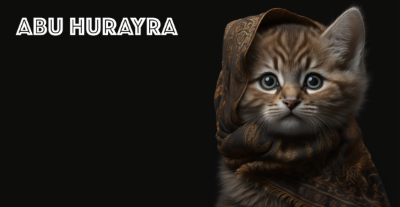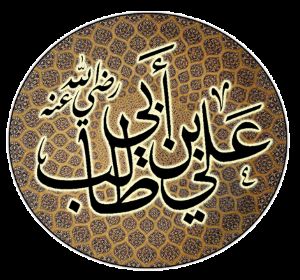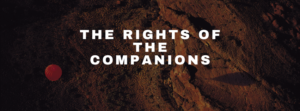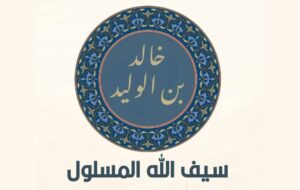
This section examines the efforts of Aboo Hurayrah to preserve the Sunnah of the Prophet ﷺ for himself and generations of Muslims that will come after him.
Ulama Institute #1
Looking to learn Arabic or memorize the Quran?
Check our Trusted Teachers

As a sincere believer and a distinguished student of Islam, Aboo Hurayrah took it upon himself to teach others whatever he had learned. He spent most of his time with the Prophet ﷺ and this enabled him to observe and record much of his behavior and statements.
It seemed strange to some people that Aboo Hurayrah who had spent just four years in the Prophet’s company was able to narrate more ahaadeeth than other Companions who had spent much more time with him. Aboo Hurayrah clarified that he was constantly in the company of the Prophet ﷺ and not busied with trade, business, or agriculture like so many others. Here was a man who had the time and the opportunity to take full advantage of having access to a Prophet who was sent during his lifetime. So, Allah preserved much of the prophetic Sunnah by way of Aboo Hurayrah. Through his constant interaction with the Prophet, Aboo Hurayrah was able to preserve much of the Prophet’s speech, actions, and physical description for future generations.
Allah ﷻ says the following in the Qur’aan.
لَّقَدْ كَانَ لَكُمْ فِى رَسُولِ ٱللَّهِ أُسْوَةٌ حَسَنَةٌۭ لِّمَن كَانَ يَرْجُوا۟ ٱللَّهَ وَٱلْيَوْمَ ٱلْـَٔاخِرَ وَذَكَرَ ٱللَّهَ كَثِيرًۭا ( سورة الأحزاب : ۲۰)
“There has certainly been for you in the Messenger of Allah an excellent example for anyone whose hope is in Allah and the Last Day and [who] remembers Allah often.” (Soorat al- ahzab :21)
So in this statement Allah makes it clear for all Muslims that the best example to follow is the example of the Prophet. Aboo Hurayrah helped to preserve this example for future generations by recording it and committing it to memory.
Below are some examples of the prophetic Sunnah that Aboo Hurayrah preserved for us:
Aboo Hurayrah narrated that Allah’s Messenger ﷺ said:
(لَا تُقبَل صَلَاةٌ مَنْ أَحْدَثَ حَتَّى يَتَوَضُا ، البخاري)
“The Salah of a person who produces a hadath is not accepted until he performs (repeats) the ablution.”(Bukhari)
Aboo Hurayrah narrated that Allah’s Messenger ﷺ said:
إذا أترك أحدُكُمْ سَجْدَةً مِنْ صَلَاةِ الْعَصْرِ قَبْلَ أَنْ لَغْرُبَ الشَّمْسُ فَلَيت صَلَاتَهُ وَإِذَا أَدْرَكَ سَجَدَةً مِنْ صَلَاةِ الصُّبْحِ قَبْلَ – أن تَطْلُعَ الشَّمْسُ فَلَيْتم صلاته (البخاري)
“If one of you was able to pray one rak’ah of the ‘Asr prayer before the sun sets, then he should complete his Slah. If one of you was able to pray one rak’ah of the morning prayer before the sun rises, then he should complete his Salah.” ( Bukharich )
Aboo Hurayrah narrated that the Messenger of Allah ﷺ said:
أَفْضَلُ الصِّيَامِ بَعْدَ رَمَضَانَ شَهْرُ الله المحرم وأَفْضَلُ الصَّلَاة بَعْدَ الْفَرِيضَةِ صَلَاةُ اللَّيْلِ. (مسلم)
“The best fast after Ramadaan is (in the) month of Allah, Muharram; and the best prayer after the obligatory prayer is voluntary prayer performed at night.” (Muslim)
Aboo Hurayrah narrated that Allah’s Messenger ﷺ said:
يُسَلِّمُ الصَّغِيرُ عَلَى الْكَبِيرِ وَالْمارُ عَلَى الْقَاعِدِ وَالْقَلِيلُ عَلَى الْكَثِيرِ (مسلم)
“The younger person should greet his elders, and the walking person should greet the one who is seated, and the small group of people should greet the larger group of people.” (Muslim)
Aboo Hurayrah narrated that he heard the Messenger of Allah say:
وَاللَّهِ إِنِّي لَأَسْتَغْفِرُ الله وَأتُوبُ إِلَيْهِ فِي الْيَوْمَ أَكْثَرَ مِنْ سَبْعِينَ مَرْد ، البحاري
“By Allah! I seek Allah’s forgiveness and tum to Him in repentance more than seventy times a day.” (Bukhari)
The ahaadeeth quoted above are just a few examples of the way in which Aboo Hurayrah preserved the Sunnah for us. By way of his narrations, Muslims all over the world can worship Allah in the manner that the Prophet taught his Companions.
Learning from the lesson
- Aboo Hurayrah spent much of his time with the Prophet
- Every situation in a person’s life is addressed by the Sunnah of the Prophet
- Many of Aboo Hurayrah’s narrations provide a blueprint for the actions of future generations of Muslims.







